2011 Campbell Award Finalists
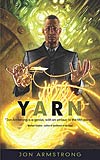
The Finalists for the 2011 The John W. Campbell Memorial Award have been announced!
- Yarn – Jon Armstrong (Night Shade Books)
- Hull Zero Three – Greg Bear (Orbit)
- Zero History – William Gibson (Putnam)
- C – Tom McCarthy (Knopf)
- The Dervish House – Ian McDonald (Gollancz / Pyr Books)
- New Model Army – Adam Roberts (Gollancz)
- The Quantum Thief – Hannu Rajaniemi (Gollancz / Tor Books)
- Veteran – Gavin Smith (Gollancz)
- The Waters Rising – Sheri S. Tepper (Eos)
- Aurorarama – Jean-Christophe Valtat (Melville House)
- Anthill – E.O. Wilson (W.W. Norton & Company)
- Blackout/All Clear – Connie Willis (Spectra)
- How to Live Safely in a Science Fictional Universe – Charles Yu (Pantheon)
There is quite a variety of books here with some of the usual suspects like Gibson, McDonald and Willis making an appearance as well as some authors I’ve never heard of. What do you think of this list? Who are your favorites to win it?



















 Full Details
Full Details
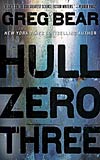
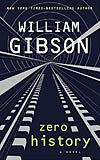
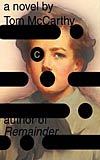
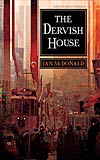
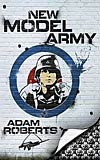
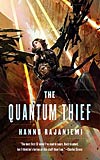
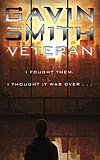
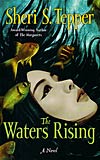
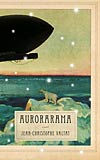
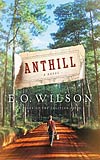
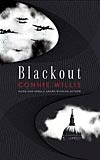
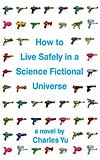


6 Comments
I read The Economist’s review of the Anthill about a year ago or so and I almost bought the book. However, the amazing part, the part that makes the book unique and what got it nominated, is only 1/3 of the book (the middle). So I didn’t get it. The middle part is describing the world and the rise and fall of ant civilizations from the ant’s point of view. Sounds very interesting. Alas, not enough of it. And oh by the way, Anthill is not science-fiction in any conceivable way imaginable.
@Wintermute. That’s just weird. Just because a book takes a turn for the fantastic doesn’t mean it’s SF. Yu’s books is an interesting choice. Very meta-SF from what I understand. Not everyone’s taste, but I’m intrigued enough to give it a try. The Dervish House is on my to-read-darn-soon list, considering the various awards its been up for. I found it on the Kindle Store for $1.99, so definately going to dive into it soon!
I’ve only read good reviews about "Quantum Thief" and will soon add it to my all-ready-impossible-to-ever-catchup-on-reading list. "Dervish House" also considering it features in almost all the awards. It does say something about it’s value. Same for "Blackout" but I noticed much concern with it from many reviews. Yes, a few I never knew about. @Mattastrophic your sentiment is noted. Fantastic elements should remain in the realm of fantasy. I guess people have lost an understanding of what is meant by "science fiction". Some fantasy may be sf, but not all fantasy is.
Hm, the only ones I’ve read so far are "The Dervish House" and "Blackout" (not yet read "All Clear"). I’ve heard some negative reviews of Blackout/All Clear, but the first half was pretty interesting. I think "The Dervish House" deserves all the attention it’s getting this year. The rest I will add to my constantly growing to-be-read-at-some-undefined-point-in-the-future pile, but I doubt I’ll be able to read many (if any) of them before the winner’s announced.
"Yarn" was a thoroughly enjoyable, and peculiar, experience. Armstrong pulls off a language of a wholly different world/time without completely losing the reader. And by language, I don’t mean an invented lingua externa, but a believable future dialect."C" was my great hopeful for the Man Booker Prize, and I’d be quite happy to recommend it to anyone who enjoys good writing and adventure.Beyond those two, haven’t read any on the list, though, as noted above, Blackout/All Clear has received a great deal of attention and is on my shelf as a result.
Interesting little tidbit on the Quantum Thief author (1st novel, English not first language). The following is part of J. Vandermeer’s blog post about his trip to Finland to discover Finnish Sci-Fi, via the Science Fiction and Fantasy Translation Awards blog: "Rajaniemi is a new writer whose first novel The Quantum Thief has taken the United Kingdom by storm. Described as ‘a crazy joyride through the solar system several centuries hence, the novel is published this month by Tor, amid excited buzz. Halme told me that the novel has been just as popular in Finland as in the U.K., and gained a lot of legitimacy for science fiction in his country. Indeed, Rajaniemi wrote his novel in English, meaning it had to be translated into Finnish for publication in his home country. Although not many Finnish authors do self-translate, most do read in English, as it is a widely used language."
Sorry, the comment form is closed at this time.